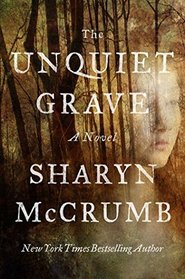Helpful Score: 1
Sharyn McCrumb is a master at finding strange-but-true bits of history that have taken place somewhere in the Appalachian Mountains and then weaving a mesmerizing tale around them. You can't get much stranger than a murder trial based on the testimony of a ghost, and that's a fact.
McCrumb tells her tale in a two-pronged approach. One storyline follows Gardner in the insane asylum in 1930. Gardner, the first black attorney to practice law in nineteenth-century West Virginia, is such a calm, measured, educated voice of reason that you'd never dream he could have been associated with such a trial-- or be a patient in an insane asylum.
The second storyline follows Mary Jane Heaster, first as she worries about her headstrong daughter's extremely poor life choices, and then as she fights to make "Trout" Shue pay for her daughter's death. There's very little doubt that Shue did indeed murder Zona, but there's no proof that would be admissible in a court of law. Make that a court of law in the twenty-first century. So-- here you have the sane man in the asylum and the possibly insane woman free to bend an entire courtroom to her will. Mary Jane Heaster is a force of nature.
The story is a good one, and the voices of Mary Jane and Gardner come shining through. Through them, you really get a feel for how people lived and thought back then. I've long been an ardent fan of McCrumb's Ballad novels; in particular, the ones featuring Nora Bonesteel and Spencer Arrowood are lyrical and... marvelous. Although The Unquiet Grave is listed in some places as a Ballad novel, that's simply a matter of geography-- Ballad novels take place in the Appalachians. Regardless of designation, this is not one of McCrumb's better books. The pace drags, but even worse, there is no spark, no heart to the story she tells. If you want vintage Ballad, look for The Hangman's Beautiful Daughter, She Walks These Hills or The Rosewood Casket. That's where you'll find gorgeous writing and heart and soul.
McCrumb tells her tale in a two-pronged approach. One storyline follows Gardner in the insane asylum in 1930. Gardner, the first black attorney to practice law in nineteenth-century West Virginia, is such a calm, measured, educated voice of reason that you'd never dream he could have been associated with such a trial-- or be a patient in an insane asylum.
The second storyline follows Mary Jane Heaster, first as she worries about her headstrong daughter's extremely poor life choices, and then as she fights to make "Trout" Shue pay for her daughter's death. There's very little doubt that Shue did indeed murder Zona, but there's no proof that would be admissible in a court of law. Make that a court of law in the twenty-first century. So-- here you have the sane man in the asylum and the possibly insane woman free to bend an entire courtroom to her will. Mary Jane Heaster is a force of nature.
The story is a good one, and the voices of Mary Jane and Gardner come shining through. Through them, you really get a feel for how people lived and thought back then. I've long been an ardent fan of McCrumb's Ballad novels; in particular, the ones featuring Nora Bonesteel and Spencer Arrowood are lyrical and... marvelous. Although The Unquiet Grave is listed in some places as a Ballad novel, that's simply a matter of geography-- Ballad novels take place in the Appalachians. Regardless of designation, this is not one of McCrumb's better books. The pace drags, but even worse, there is no spark, no heart to the story she tells. If you want vintage Ballad, look for The Hangman's Beautiful Daughter, She Walks These Hills or The Rosewood Casket. That's where you'll find gorgeous writing and heart and soul.




